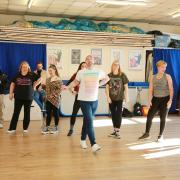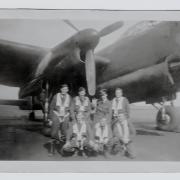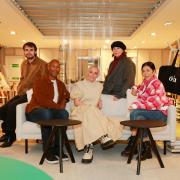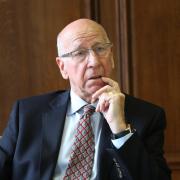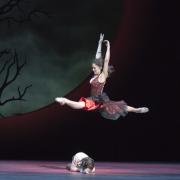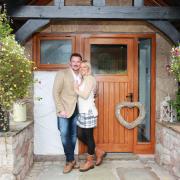John Timpson - forever associated with shoes - is opening new shops every week. How is it done?
What John Timpson’s great-grandfather William Timpson began in 1869 as a shoe shop in Oldham Street, Manchester, has grown into a nationwide group with about 2,700 employees in more than 550 outlets offering various services: key cutting, shoe and watch repairs, dry cleaning, photographic portraits among many others.
Family ownership was, however, broken for a period: ‘It became a public company in 1929, and was still a family-controlled public company when I got involved in 1960 – I became a director in 1970. We had a boardroom row; my father was fired by the other directors, so we said if you’re going to do that we’re going to sell our share to someone else. They didn’t believe us, but we did it.’
The new owners, Stockport-based United Drapery Stores, were snapped up by the Hanson Group, and John led a management buyout of the Timpson component. ‘That was 1983, and I sold the shoe shops in 1987. And that’s when we moved to this building in Wythenshawe. We’re very happy just to grow around here. The transport is good. I live in Cheshire, nearby. I have no particular reason to have an office in London.’
He rejects the description of Timpson House as the company HQ: ‘We don’t say that we run the business from this place, the business is run by the people out in the shops. We’re here to support them,’ a neat encapsulation of his ‘upside-down management’ philosophy. ‘I discovered some time ago that the only successful way to offer great customer service is to give the people who serve the customers the freedom to do it the way they want. So long as you look the part, turn up on time, and put the money in the till I won’t tell you what to do.’
His publishers – he has written several management books - call him a maverick, which seems oddly out of place with his grandfatherly looks, though this grandfather ran last year’s London Marathon, plays golf at Delamere with a handicap of 13, and enjoys regular games of real tennis at Manchester Tennis & Racquet Club. But in a business world too often dominated by theoreticians, common sense can seem radical.
Much of his business thinking runs contrary to standard business texts: like not having meetings, and no annual appraisal round: ‘I realised what a waste of time that whole thing was. Worse than that: here I was trying to find something to criticise the good people about, and to find something nice to say about people who were useless.’ His view of marketing is equally blunt: ‘If you have a marketing department they want to do marketing, that’s why you find the high street littered with shops that have posters covering the windows so you can’t see inside. And they keep changing promotions to justify their existence.’
The company has avoided empire building too, partly by not having a formalised management structure: ‘We actually have fewer support staff than we did three years ago, yet we have 300 more shops. We have a buying department of three here: when we were expanding I asked how they would cope: “Place bigger orders” was the answer. Brilliant.’
In his conversation the most frequently heard word is ‘people’: ‘We only employ people on personality, we’re not bothered about their CV, don’t care what exams they’ve passed. All we are interested is whether people have got ‘it’. We want Mr Keen, Mr Happy, people that others want to work alongside. We mark them out of 10. We only take 9s and 10s.’
Fascinatingly some of those 9s and 10s are former prisoners, including some branch managers and an apprentice of the year: ‘We are the most active recruiter from prisons of anyone in the UK, partly driven by the example set by my wife in terms of the way we approach things. But there are some great people in prison. We apply the same criteria when we are recruiting from prison as elsewhere – 9s and 10s.’ But if people don’t shape up they ship out.
It’s Alex, John’s wife of more than 40 years, who is the driving force behind another group venture that he describes as a near-social enterprise. They bought The White Eagle in Rhoscolyn on Anglesey partly because they wanted somewhere good to eat near a house they own in the area. They revamped it and have a roaring success on their hands. Now they’re transforming what was the Maelog Lake Hotel near Rhosneigr into The Oyster Catcher. Young Anglesey people with what John describes as ‘multiple barriers to employment’ – ‘My wife said we don’t want easy cases’ – are training as chefs at their academy.
That hands-on approach to making a difference applied to another aspect of John and Alex’s life: ‘When our youngest child went to school my wife, not being keen on spending her whole life on lunching with the other mums, looked for something to do. It was going to be something with children – she was a nursery nurse before we married. She saw an advert from the social services in Macclesfield, applied to be a foster carer, and we did it for 31 years, fostering exactly 90 children.’ She is now supporting families as a Homestart volunteer, helping them change.
Common sense and energy were doubtless as vital in fostering as they are in his business success. His own view of change for the good is reflected in how he sees the future of our high streets: ‘If you were to look at a map of your town of 40 years ago you’d find maybe five-sixths of the shops have gone. Rumbelows, John Colliers, Woolworths... but look at a boarded-up shop and you’ll find it’s not something you’ll miss.
Somewhere round the corner there will be another business to take over that space because there are lots of new things happening. It’s changing, it always has changed.’



